Food and solidarity help displaced people from Cameroon’s Far North overcome grief
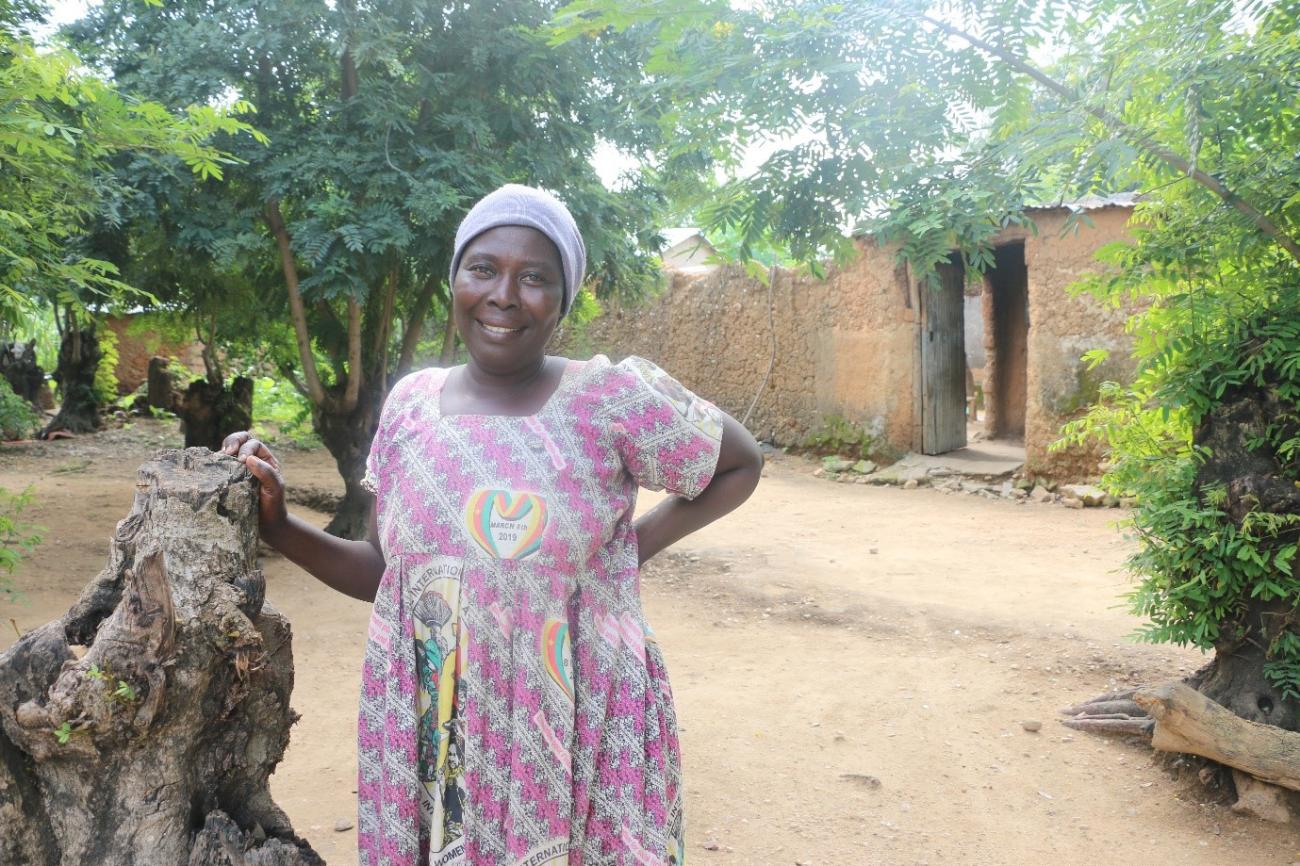
As conflict and hunger intertwine, WFP assists Nigerian refugees, internally displaced people and the vulnerable communities that host them
Originally from a small village in Magdemé in the Mayo Sava Division of Cameroon’s Far North region, 48-year-old Hawa Elizabeth fled her home in 2015. She still tears up at the memory.
“You wouldn’t just get over seeing your husband butchered before your eyes,” Elizabeth says as teardrops run down her cheeks.
She tells her story while cooking lunch for her seven children. She takes a while to wipe her tears and recompose herself before she continues. “Nor would you forget the image of your home up in flames, the smoke coating the sky even from miles away. I saw those images every night for a long time when my children and I finally got to safety.”
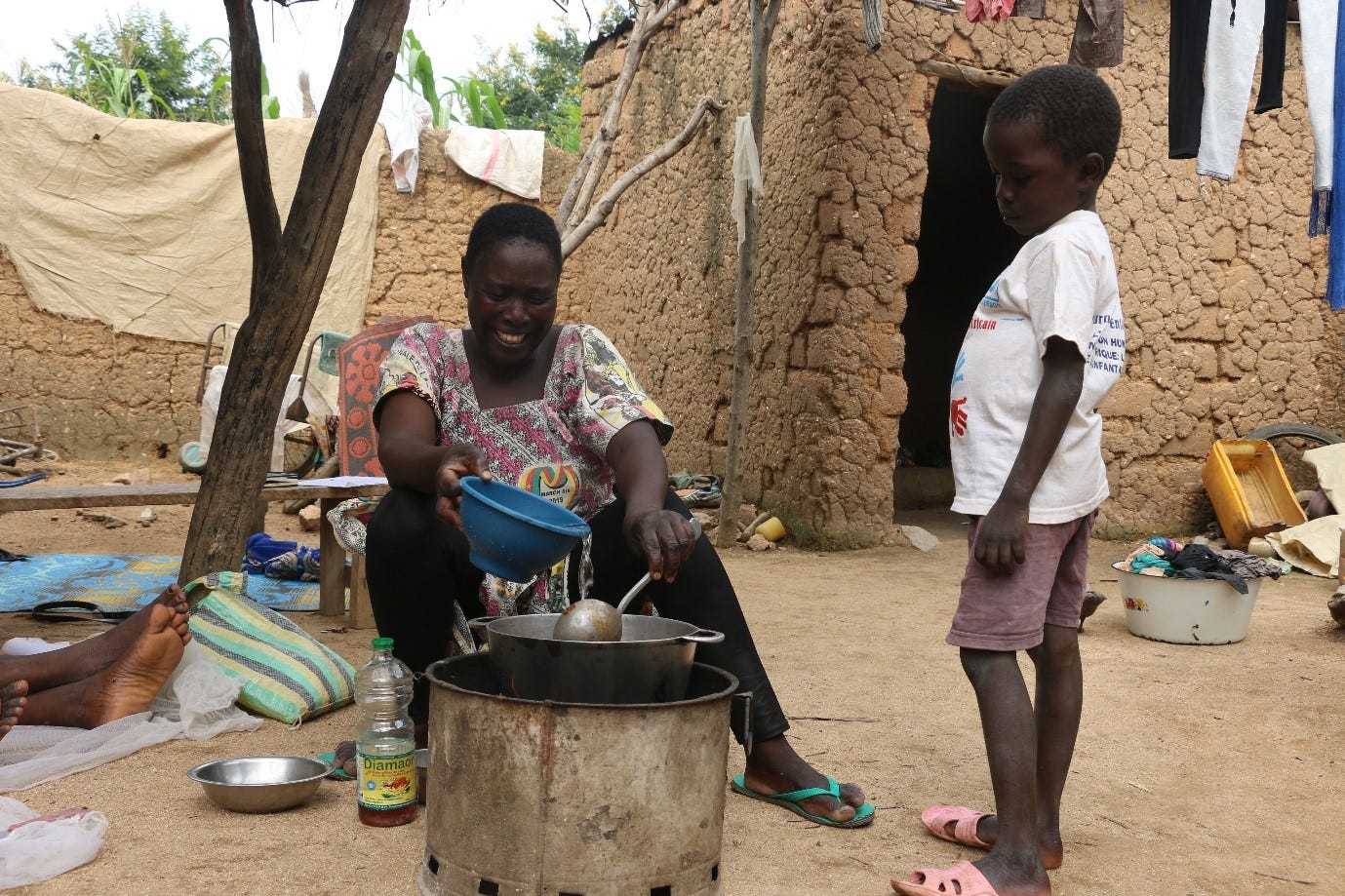
Helped by her 5-year-old son Benjamin, Elizabeth cooks using ingredients she bought with WFP mobile cash transfers. Photo: WFP/Glory Ndaka
Speaking in Kanuri, Elizabeth uses the phrase ‘wahalla mbey’ which means ‘grief’ to describe the state she was in after losing her husband, farmland, cattle and the only home she ever knew.
“I was in deep grief. When I ran out of the little money I had, I could no longer feed the children, the youngest was only 8 months old at the time. What will the children eat? What about their education? These were all questions I asked myself every day. I gave up on myself and my family,” she says.
Thanks to support from humanitarian organizations in Ouro, a small community that hosts thousands of internally displaced people, she now has a new home.
‘Food saved me’
It was something people tend to take for granted that made a difference in Elizabeth’s life: food.
With the monthly food assistance she receives via mobile cash transfers, Elizabeth can now feed her children.
“One never really appreciates the value of things, like food, when you have them all the time,” she says. “Food saved me! It cut down my level of stress and worry by half. My children finally had a reliable source of food.”
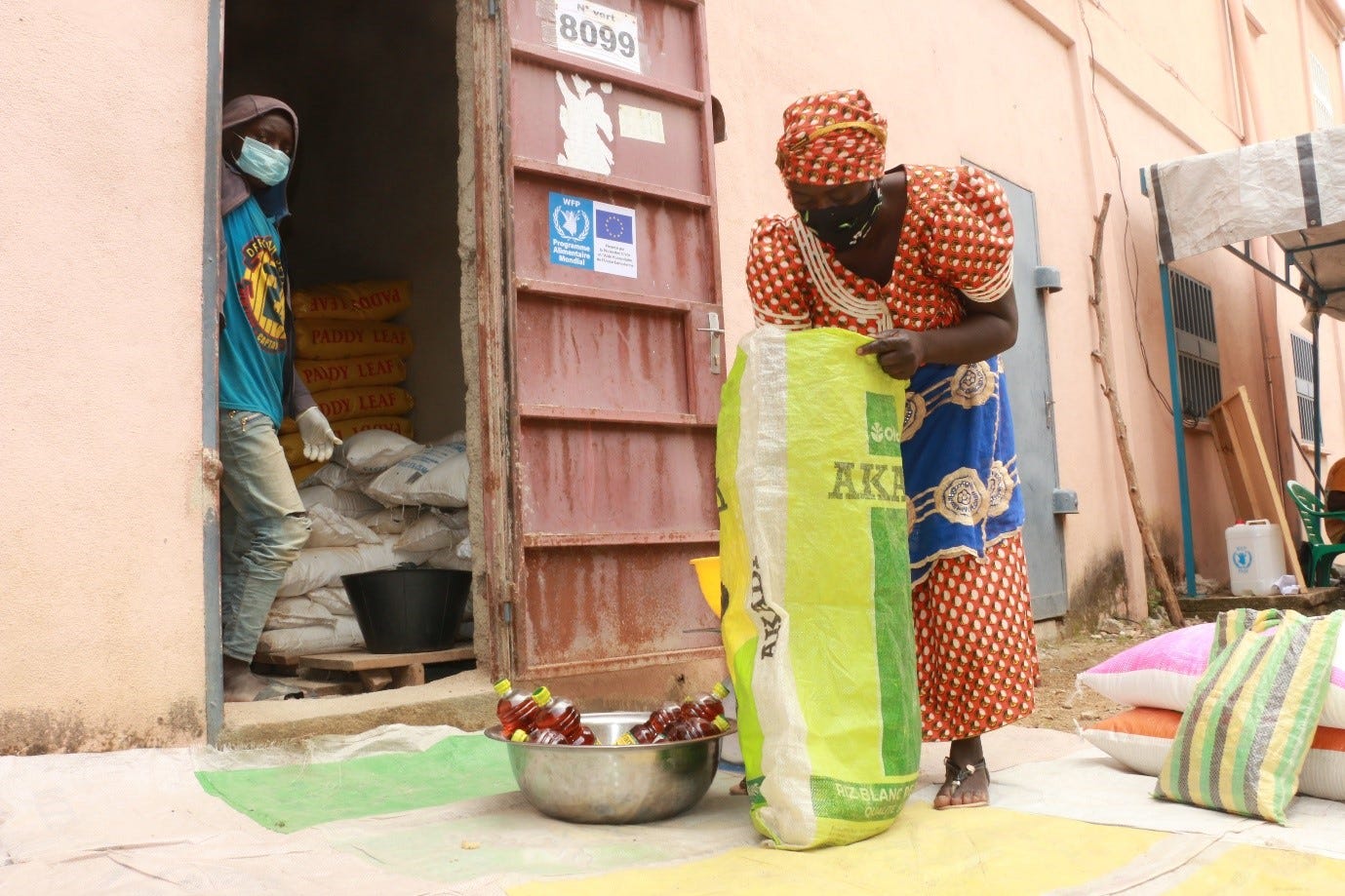
Elizabeth unpacks food she buys using WFP mobile cash thanks to financial support from the European Union, USAID and the UK. Photo: WFP/Glory Ndaka
Elizabeth also made a friend: Catherine Ndasdegaï — a 31-year-old mother and representative of internally displaced people receiving World Food Programme (WFP) food assistance in the Mokolo area. Catherine’s outlook and courage inspired her to turn over a new leaf.
“Meeting Catherine was life-changing: that woman changed my life! I couldn’t believe a woman 17 years younger could be so strong despite all she had been through.”
Catherine has lived in Mokolo for six years after fleeing her home in Amchidé, a village along the Nigerian border. Losing everything in her village meant starting anew. She has not heard from her husband since.
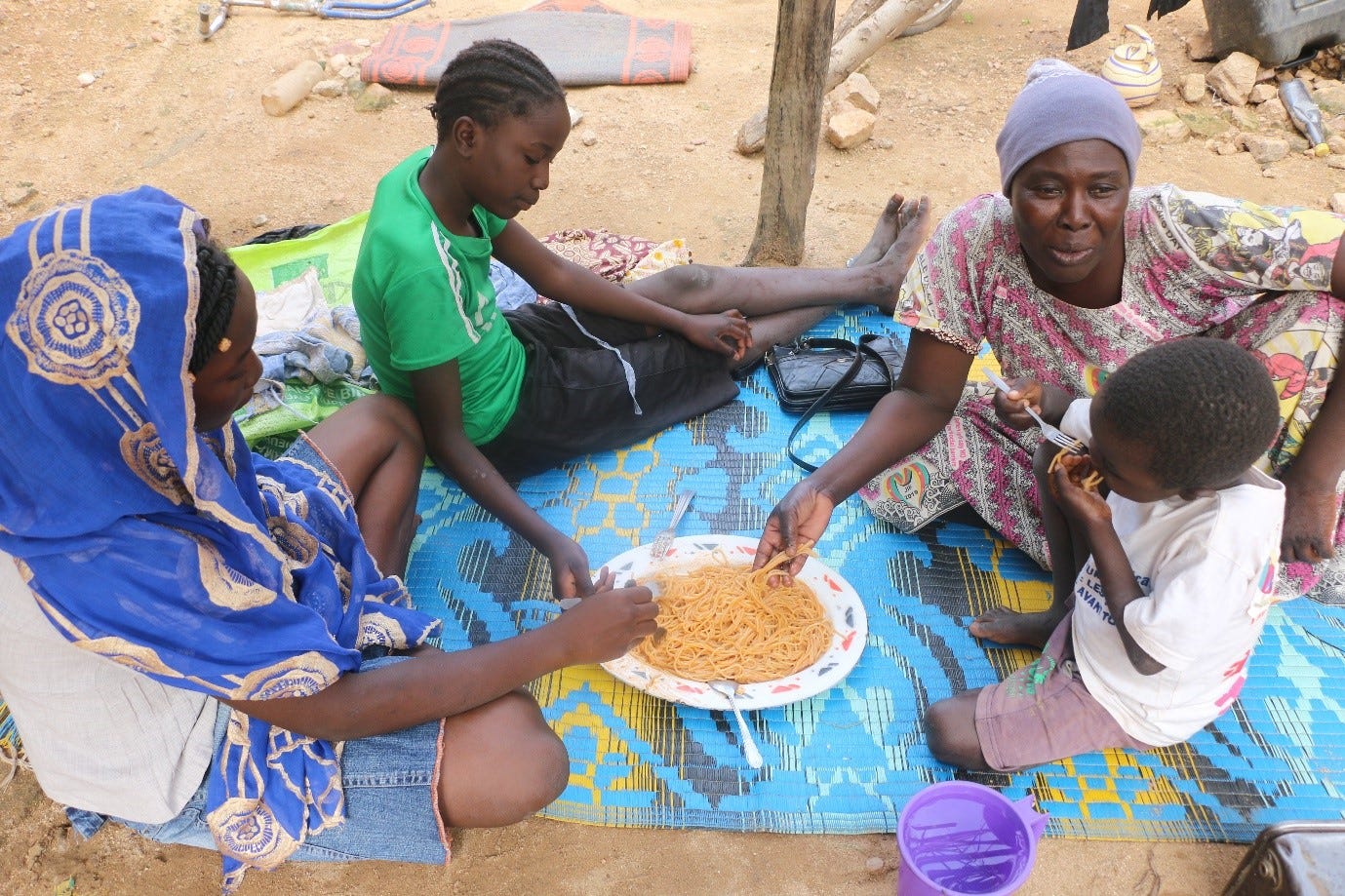
Elizabeth and her children enjoy lunch together. Photo: WFP/Glory Ndaka
“I have to be strong for my children,” she says, sounding upbeat. “I do not know if it is a good thing or a bad thing, but I never had time to grieve. I was 25, with no husband, no money and no home. I had to think and work fast. Living in a camp for internally displaced people was not the life I had planned for my children. Receiving WFP food assistance was one of the reasons I could continue to be strong for my children, because at least we were not hungry.”
Women helping women
Besides being a representative for internally displaced people receiving WFP’s food assistance, Catherine also volunteered with some local NGOs in the Mokolo area, serving as a translator and community animator. This is how, with support from a local NGO, she created a group that provides a safe space for internally displaced women in the area to share their experiences and receive help and advice from each other.
The group has been meeting on the last Sunday of every month at Elizabeth’s house. Due to the COVID-19 pandemic, their meetings have been suspended but members do reach out to one another when help or counsel is needed.
“I speak to a lot of women every day, they tell me their stories and the challenges they are facing. But I am just one woman with my own unique experience and no formal training. The monthly meetings we have give everyone a chance to listen and learn from each other.”
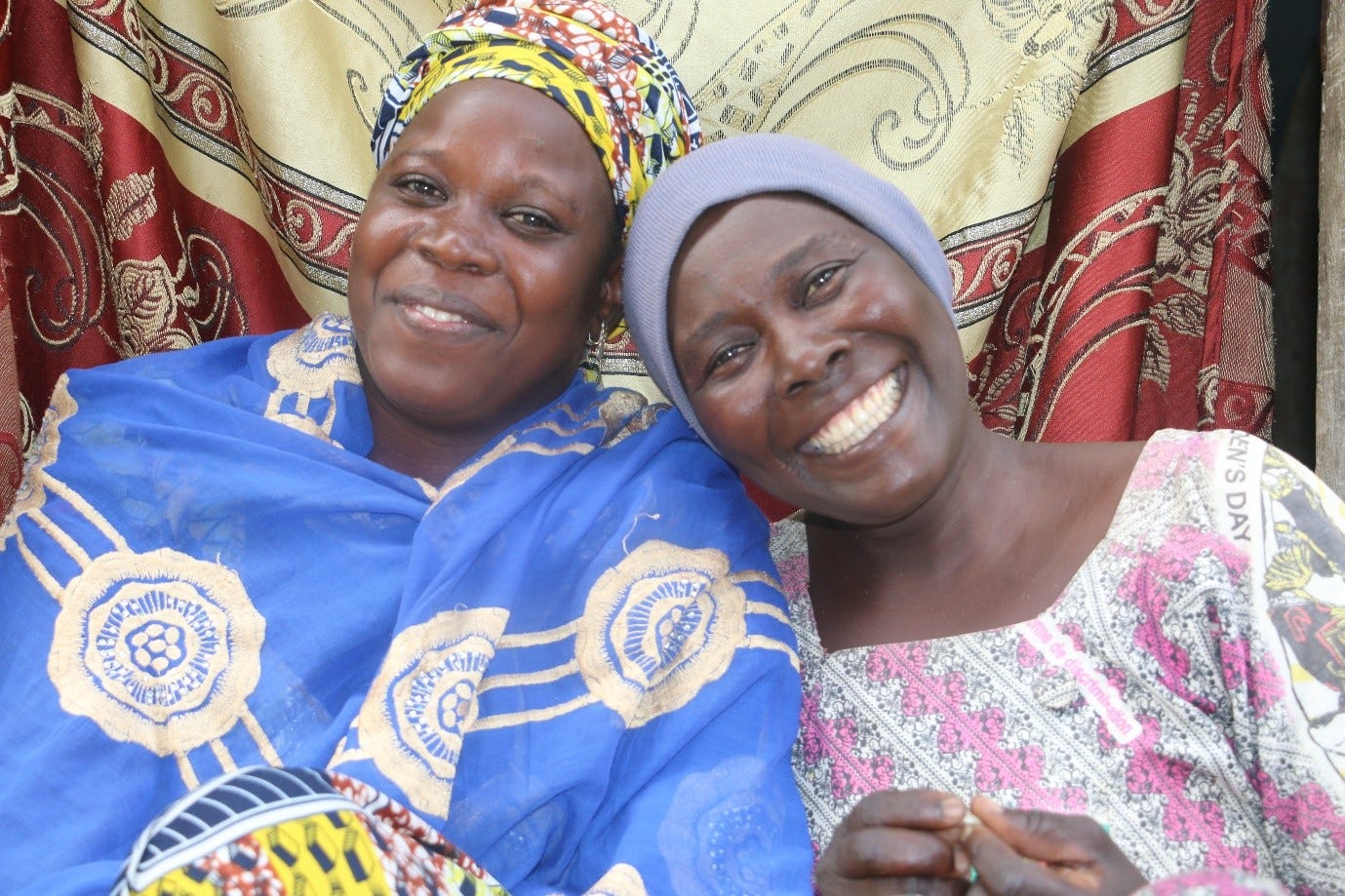
Catherine (left) and Elizabeth (right) photographed together at Elizabeth’s home before the COVID-19 pandemic. Photo: WFP/Glory Ndaka
Elizabeth and Catherine have since become good friends and Elizabeth considers the past three years of her life a blessing.
“I am happy with how far I have come. Sometimes when I look back, I see myself as weak for letting grief rule me and almost destroy my family. But today, I am proud that I overcame those challenges thanks to all the assistance I have been able to receive.”
WFP’s assistance remains critical. Thanks to support from the European Union, the UK Agency for International Development and the United States Agency for International Development (USAID), WFP is reaching over 140,000 vulnerable people like Elizabeth and Catherine with valuable food assistance every month in Cameroon’s Far North region.



